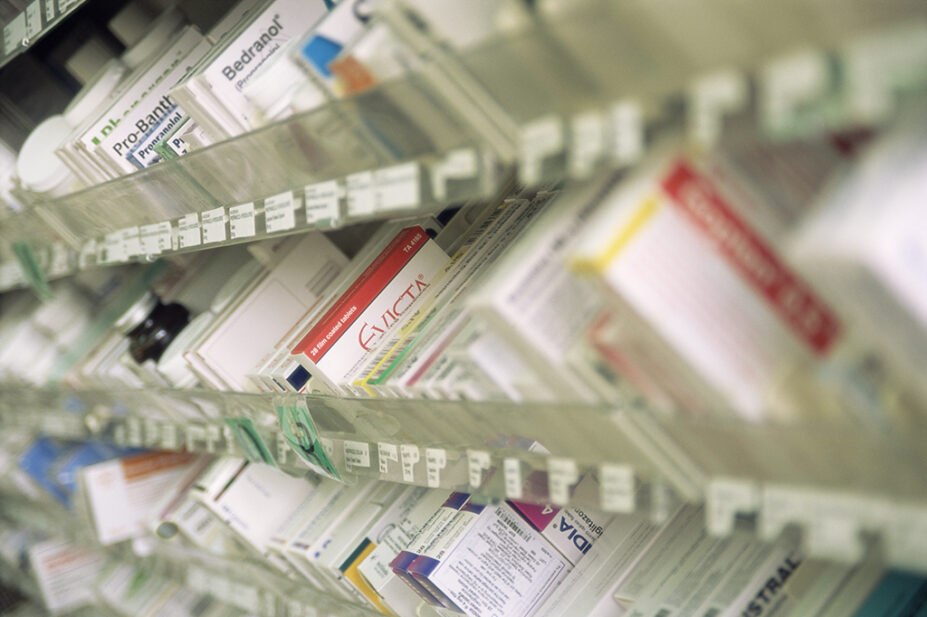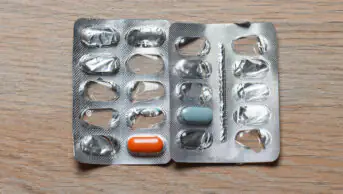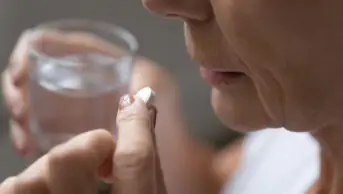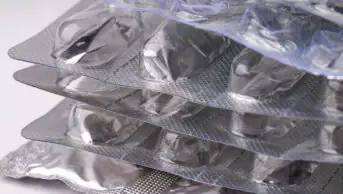
JOHN COLE / SCIENCE PHOTO LIBRARY
More than half of items dispensed by community pharmacists using serious shortage protocols (SSPs) were antidepressants, data analysis by The Pharmaceutical Journal has revealed.
SSPs, introduced in October 2019 as part of preparations for a ‘no-deal’ Brexit, allow pharmacists to respond to a medicines shortage by offering an alternative product specified in the protocol.
Data from NHS Business Services Authority (BSA), obtained through a Freedom of Information request, show that pharmacists dispensed 68,028 items using an SSP between October 2019 and October 2022.
The data also revealed that seven different forms of the antidepressant fluoxetine accounted for 57% (38,844) of all SSP items dispensed in that time.
Between October 2019 and January 2021, the government issued seven SSPs for fluoxetine capsules and tablets, with pharmacists able to dispense alternative strengths or forms of the same medicine instead of what was prescribed.
Meanwhile, HRT products accounted for just 10% (6,722) of all SSP items dispensed over the three-year period.
This is despite concerted efforts by the Department of Health and Social Care (DHSC) to manage HRT shortages using SSPs.
In April and May 2022, the government issued 13 SSPs to limit the amount of HRT product that could be dispensed to a patient and enable pharmacists to provide alternatives where clinically appropriate.
However, while the substitutions required for the fluoxetine SSPs were described as “straightforward”, switching HRT presented additional challenges.
Graham Stretch, president of the Primary Care Pharmacy Association, chief pharmacist at Argyle Health Group and clinical director at Brentworth Primary Care Network, commented: “That caused a lot of frustration. I don’t think they allowed sufficient freedom for pharmacists to use [the SSPs], or the pharmacists’ didn’t feel well informed enough about a patient’s situation.
“The relative inflexibility of [SSPs] as an instrument meant that pharmacists often had their hands tied and GPs just don’t understand the way the rigid instruments work because they’re used to having the freedom [to prescribe],” he added.
“And I think, on the patients’ side, there’s often a trust issue as well. That’s something that we, as a profession, have to work on.”
Overall, the NHSBSA data showed a recent decrease in the use of SSPs, with the number of items dispensed using the protocols 70% lower in the year to October 2022 (12,814 items), compared with the year to October 2021 (38,653 items).
Gordon Hockey, legal director at the Pharmaceutical Services Negotiating Committee, said the protocols “can be a useful tool to help mitigate significant supply disruptions, but they are not always used”.
“For example, once a supply issue is well known, such as with HRT products, GPs may change their prescribing habits to request the alternative formulation or product on prescriptions, thereby passing the need to use an SSP,” he said.
However, where they are used, Hockey admitted that SSPs are “complex and time-consuming”, adding that if a pharmacist makes an error when claiming for the SSP “there is the potential for a contractor to lose out” on funding.
For each SSP-endorsed prescription — in which pharmacists can supply multiple alternative items at once — contractors earn £5.35.
Commenting on the analysis, a spokesperson for the DHSC said: “There is no optimum number of times any SSP should be used. The figure depends on the number of prescriptions issued for a medicine, as well as the availability of what is prescribed, and the alternative allowed in the SSP will affect the number of times an SSP is useful.
“The system of processing SSPs is dependent on community pharmacy IT systems, which are not directly funded by the NHS — so choosing which system offers best ease-of-use would be a business decision for the pharmacy.”


